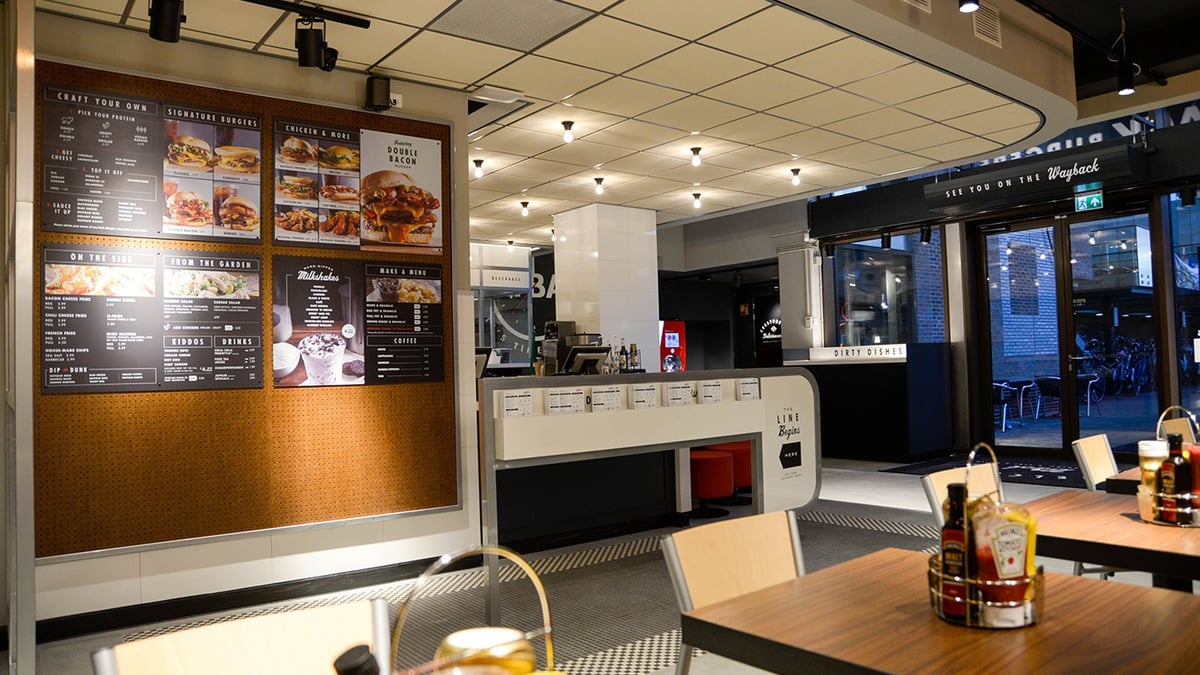Last Updated: April, 2024
If you’re an entrepreneur interested in the restaurant market, a good question to start with may be: “How much does a fast-food franchise cost?” Understanding the initial investment level and financial requirements of different franchise brands is a great starting point and a way to narrow the vast choices in this franchise-leading industry.
Each franchisor is legally required to provide an accurate representation of the average initial investment in their franchise disclosure document (FDD). Most franchise brands also indicate requirements that franchisee applicants must meet as minimum financial standards.
Aspiring first-time franchise operators may assume that a fast-food restaurant is the cheapest franchise for entering the restaurant world, but that’s not always the case. They may even find that a fast-food franchise costs more than a restaurant with a more elevated appeal.
How Much Does a Fast-Food Franchise Cost?
Let’s look at fast-food franchise costs from some of the biggest chains as reported in Entrepreneur.
If you want to stand next to Mayor McCheese at the ribbon-cutting for your new McDonald’s location, it will cost you. A McDonald’s franchise runs $1.47 million to $2.5 million and requires franchisee applicants to have at least $500,000 in liquid assets just to be considered.

Burger King franchises come at an estimated total cost of $1.8 million to $4.5 million, a net worth of $1 million and a cash requirement of $500,000. That’s a whopper of an investment. Not far behind is Taco Bell which will cost you $575,600 to $3.37 million, accompanied by a $2 million cash requirement and a $5 million net worth requirement.
You can get into a Wendy’s restaurant with a $500,000 cash requirement, a $1 million net worth, and an initial investment of $320,500 to $4,622,000. That might be a frosty proposition for aspiring franchisees. Finally, there’s Dairy Queen with a franchise cost of $1.5 to $2.5 million, a net worth requirement of $750,000 and a cash requirement of $400,000.
Lower Fast-Food Franchise Costs
At the lower end, Papa John’s will deliver a franchise agreement for $188,615 to $975,415 if you have $250,000 in liquid assets and a $750,000 net worth. A Dunkin’ Donuts franchise can be had for $437,500 to $1.8 million, a net worth of $500,000, and $250,000 as a cash requirement. Finally, a Subway franchise has a lower net worth of $150,000 and only a $100,000 cash requirement, but you’ll still invest between $229,050 and $522,300 to get started.
How Do These Compare to Fast-Casual Franchises?
With the speedy delivery time of fast food and the higher quality of a full-service restaurant, fast-casual franchises are growing in popularity in the restaurant industry. According to Allied Market Research, the global fast-casual restaurant market is predicted to expand by a compound annual growth rate (CAGR) of 10.4% between 2023-2032.
Like a fast-food restaurant, fast-casual customers may order from a menu board, but like a full-service restaurant, there is a more enjoyable sit-down dining experience as well. Some fast-casual franchise brands are just as affordable as many fast-food chains. For a first-time investor or someone looking for the ability to scale quickly, a fast-casual concept like Wayback Burgers could be the solution.
The Financials on Wayback Burgers
Wayback Burgers considers potential franchisees with $200,000 to $250,000 in liquid capital and a net worth requirement of $400,000 to $500,000. The initial investment ranges from $209,000 to $698,000, so entrepreneurs can open their own fast-casual burger restaurant for far below $1 million. This lower investment level also means that investors with access to more capital may be able to build additional locations in a shorter time frame.
The average Wayback Burgers footprint of 1,600 to 1,800 square feet is well below the average McDonald’s franchise of 4,500 square feet per traditional freestanding location. This translates to less overhead costs for real estate, buildout, and equipment costs. In addition, Wayback Burgers continues to grow and innovate with such additions as delivery vehicles that enable fresh, on-site cooking capabilities, and a proprietary mobile app that puts their menu (and rewards points) in the palms of their customers’ hands.
Explore Wayback Burgers as Your Restaurant Option
Whether you are a first-time business owner looking for a strong support team or a seasoned entrepreneur choosing for your next investment opportunity, Wayback Burgers is worth exploring.
Currently operating both domestically and internationally, this nostalgic and family-focused franchise has reached over 170 locations worldwide. They offer initial training and ongoing support for all franchisees and work diligently on increasing innovative ways to offer franchisees the opportunity to increase revenue while adding value to the customer experience.
To learn more about franchising opportunities with Wayback Burgers, get started by completing the online form.

